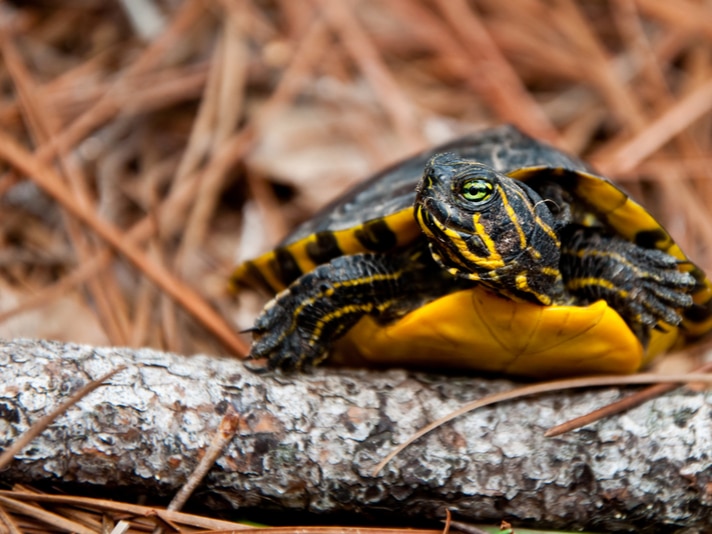Do indoor turtles still need to hibernate like outdoor turtles?
Q. I have a 3-year-old yellow-bellied slider. He is in a 75-gallon aquarium. My question is about hibernation. I have two red-eared sliders in an outside pond. They do well and have been hibernating in the winter for the past two years with no problems. Is it a good idea to hibernate my inside turtle inside? I have heard some people say it is too dangerous and others say that it is beneficial to their overall health, such as for breeding purposes. I am not breeding him, but I am wondering if it is good for his physical and mental health. I try to keep his life as natural as possible, which would mean hibernation in cold months by artificial means. He is healthy and eats a varied diet. If it is a good idea, how do I do it?
A. Winter cool-down is not necessary for your inside turtle. Your outside turtles are doing what comes naturally with decreased ambient and water temperatures and potentially with decreased daylight hours. However, your inside slider lives in a temperature controlled environment, so that he doesn’t get the environmental cues to go through a winter cool-down.
Herps have been hibernating, bruminating or going through a winter cool-down long before herpers have been keeping them as pets, so outdoor herps naturally know what to do. Because your indoor turtle doesn’t need to hibernate, there is no reason for you to go through the paces to successfully and correctly do this.
Let him enjoy his winter indoors, thinking he is a Florida cooter! Just make sure to keep him warm enough as the outdoor temperatures drop. That may mean using aquarium heaters to keep his water warm enough, in addition to having a basking light over his haul-out area.
Margaret A. Wissman, DVM, DABVP has been an avian/exotic/herp animal veterinarian since 1981. She is a regular contributor to REPTILES magazine.
Need a Herp Vet?
Find a herp vet with our comprehensive reptile vet directory. If you cannot find a herp vet using our reptile vet directory, a good place to go is the Association of Reptilian and Amphibian Veterinarian (ARAV) web site at www.arav.com.



